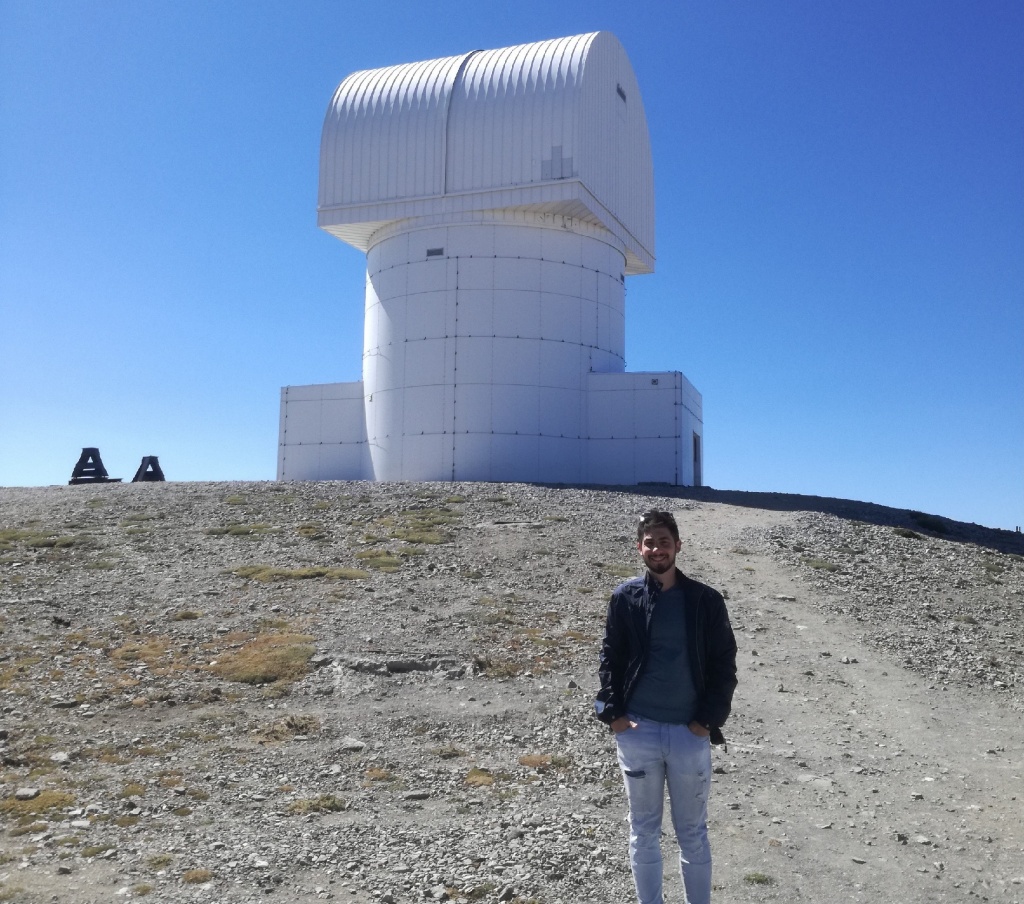EPEC Profiles – Dimitrios Athanasopoulos
In this series from the EPEC Communication Working Group, we meet members of the Europlanet Early Career (EPEC) community and find out more about their experiences and aspirations.
Dimitrios Athanasopoulos is a Ph.D. candidate at the National and Kapodistrian University of Athens (NKUA) in Greece. His research focuses on the most ancient asteroid families that have been discovered. He is performing observations to reveal the asteroids’ spin state.
From a young age, I was particularly interested in the Natural Sciences and especially in Astrophysics and Planetary Science. With the ambition to become a researcher, I set a goal to study at the Department of Physics of NKUA. The first step was taken and the journey to knowledge and research began.
During my undergraduate studies, I took part in a European student competition, where I came up with an alternative scenario of Lunar colonization that uses Lunar morphology, namely lunar pits, to protect astronauts from cosmic radiation. As part of this work, I developed code and performed original computational simulations calculating the radiation levels in these structures. Thanks to my performance, I was given the opportunity to do a 6-month internship at the European Astronaut Center (EAC) in Cologne, Germany, of the European Space Agency (ESA). There, I was a member of the Spaceship EAC team, and my work was included radiation shielding simulations for the Moon Village scenario.
In the summer of 2018, I participated in the Alpbach Summer School with the theme “Sample return from small solar system bodies”, where European students are invited to prepare a space mission proposal divided into groups. My group’s proposal was to return a sample from a type D type asteroid in order to find the relationship between asteroids and comets. Our proposal was distinguished with two awards.
After the Summer School, asteroids were included in my research interests. Hence, I enrolled in the Master in Astrophysics program at my university, and I worked on the photometric observations of the most ancient asteroids. Now, as a Ph.D. candidate, I want to delve into this field and answer research questions that arise about the oldest asteroid families and the information they give us about the early stages of our Solar System.
In the last years, I am working as a high-school teacher and in the last semester, I was working as Graduate Teaching Assistant at my University, performing lab courses for undergraduate students. Apart from teaching, I also like science communication. As an active member of the “Planets In Your Hand” team (awarded by Europlanet Funding Scheme 2017), I have conducted many outreach activities. I believe that public outreach is the duty of the scientific community so knowledge to be spread in the wider community and everyone can benefit.
Lastly, an international observing campaign, called “Ancient Asteroids”, supports my Ph.D. and was initiated willing to establish a node between professional and amateur astronomers, a Pro-Am collaboration for the characterization of the oldest asteroid families.
Everyone should have the opportunity to participate in the discovery.
The EuroPlanet Early Career (EPEC) network lays a solid foundation for tomorrow’s scientific community in Planetary Science. I am very happy to be part of this multidisciplinary team.
DIMITRIOS ATHANASOPOULOS
If you are an Early Career member of the Europlanet Society and would like to be featured in an EPEC Profile, find out more about how to submit your profile.
See all the EPEC Profiles.


